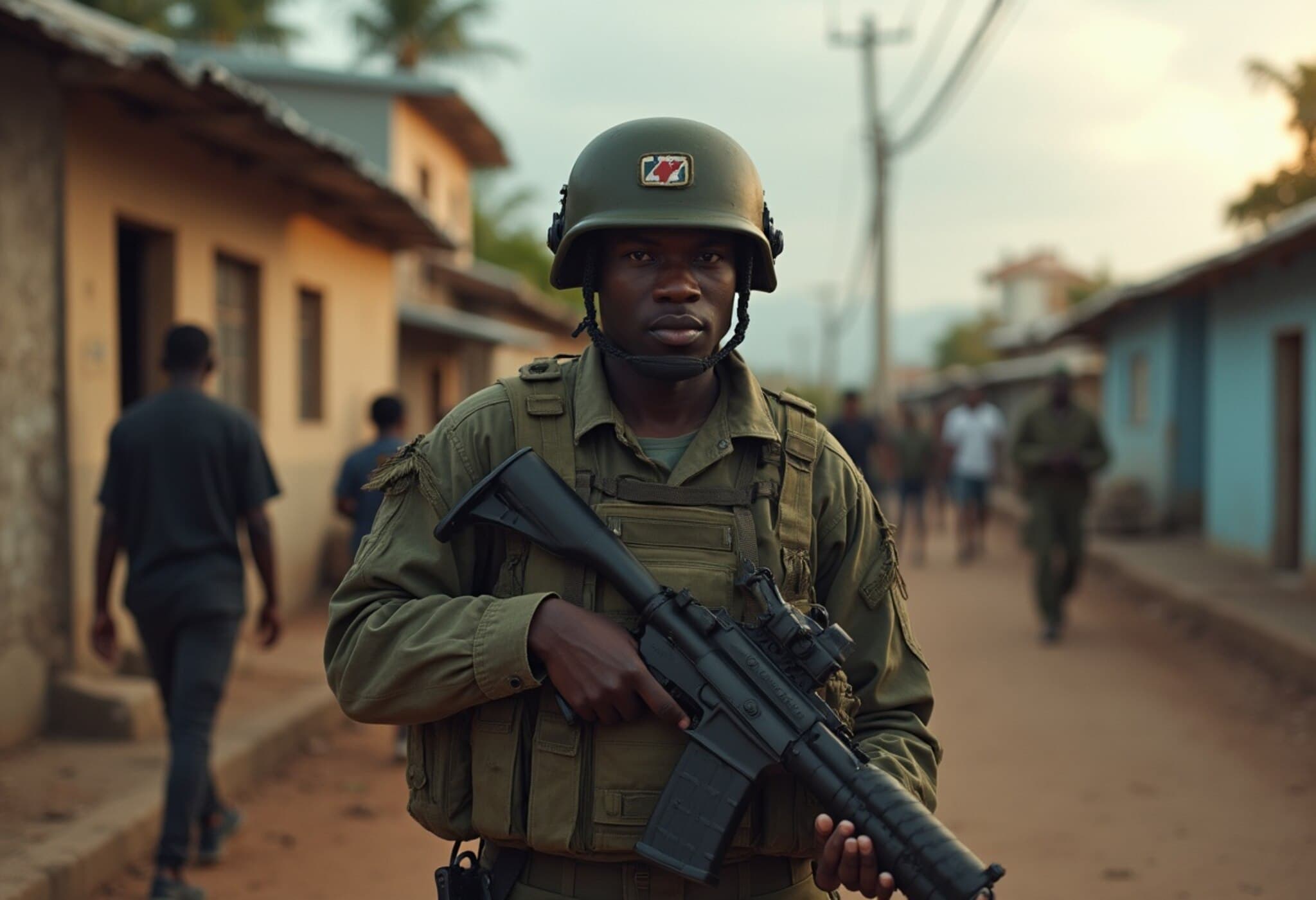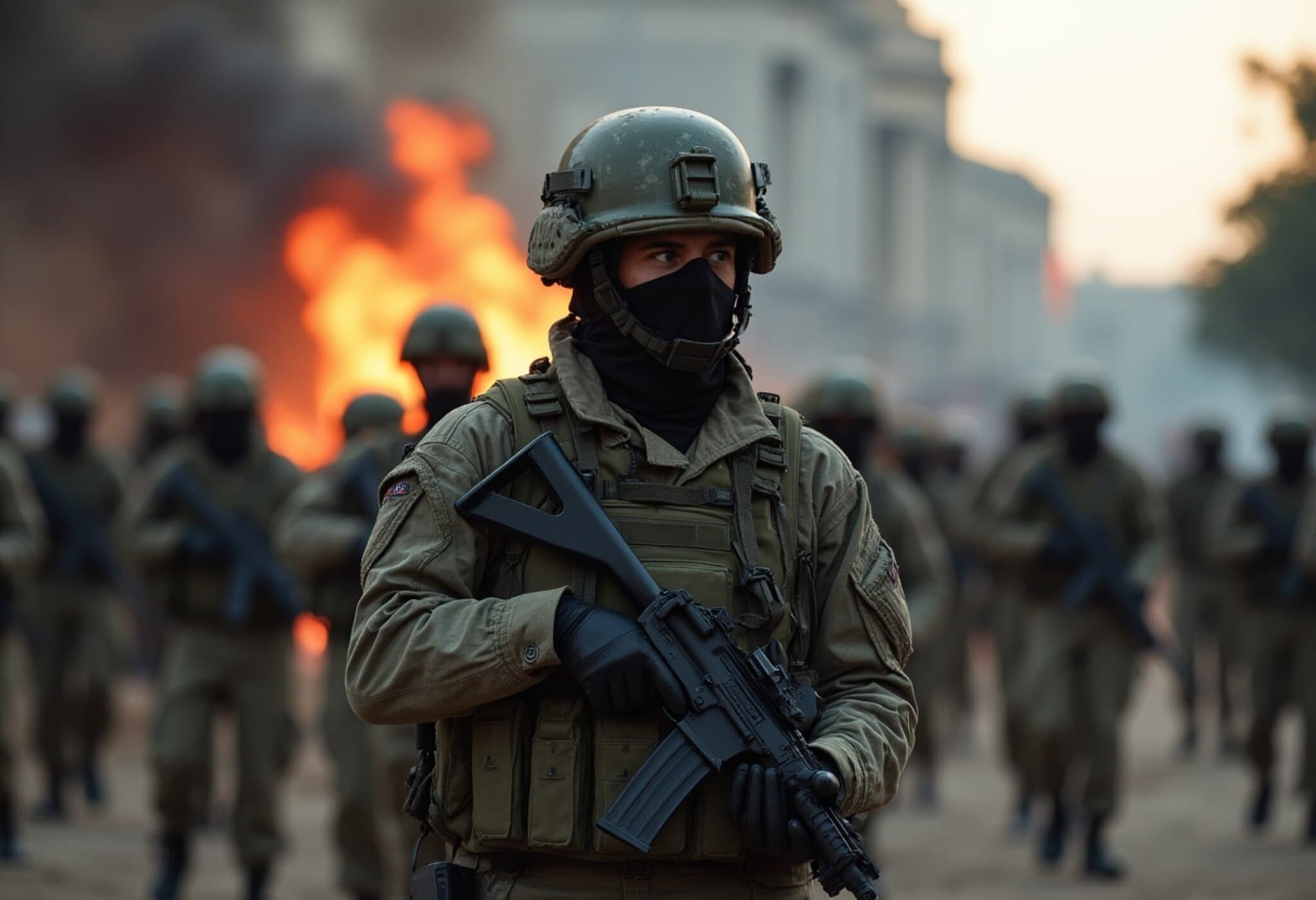Erik Prince’s Private Military Firm Escalates Operations to Combat Haitian Gang Violence
As Haiti’s security crisis deepens, Erik Prince, the controversial founder of Blackwater, is deploying his private military contractors to target the heavily armed gangs destabilizing the Caribbean nation. Prince’s new company, Vectus Global, already active in Haiti, plans to intensify its involvement alongside Haitian authorities to reclaim territories seized by violent criminal groups.
Rising Violence and Chaos in Haiti
The Haitian capital, Port-au-Prince, has been crippled by escalating gang warfare since early 2024. Armed factions launched a broad offensive that effectively isolated the city, toppled the prime minister’s government, and plunged the country into an unprecedented security vacuum. According to the United Nations, over 1,500 people lost their lives between April and July 2025 — a death toll largely fueled by clashes during government operations to regain control.
A significant portion of these casualties were linked to the government’s recent use of drone strikes against gang hideouts, a controversial tactic highlighting the desperate situation. The spiraling violence has not only shaken local communities but has also drawn international concern, prompting calls for intensified intervention.
Erik Prince: From Navy SEAL to Private Security Powerbroker
Erik Prince, a former US Navy SEAL, is no stranger to controversial security engagements. He founded Blackwater in 1997, one of the most infamous private military contractors globally. Notably, Blackwater’s legacy includes a 2007 incident in Baghdad’s Nisour Square where its employees were convicted for killing 14 unarmed civilians — an episode that stained Prince’s reputation. However, those convicted received pardons under the Trump administration, a period during which Prince’s influence grew.
Prince’s recent work extends beyond Haiti. He has advised governments in Ecuador on gang suppression strategies and brokered security deals in Africa’s Democratic Republic of Congo to protect and facilitate resource management. His comeback to the geopolitical security scene aligns with the return of Donald Trump to the White House, under whose tenure Prince’s private ventures have found new openings.
What Vectus Global Brings to Haiti’s Security Landscape
Sources familiar with Vectus Global’s plans disclosed to Reuters that the firm intends to bolster its footprint in Haiti by deploying several hundred specially trained operatives. These include snipers, intelligence experts, and communications specialists drawn from the United States, Europe, and El Salvador. The diverse team also speaks French and Haitian Creole, facilitating on-ground coordination.
The operation will leverage helicopters and boats to navigate and reclaim gang-controlled areas, working closely with Haitian police forces. This marks one of the most significant private military interventions in Haiti’s ongoing struggle with crime and governance breakdown.
Balancing Controversy and Potential Impact
Erik Prince’s involvement raises complex questions. On one hand, his tactical expertise and resources could provide much-needed support to a faltering Haitian government. On the other, the history of private military companies operating with limited oversight in conflict zones carries risks of exacerbating violence or sidelining national sovereignty.
Experts caution that while urgent action is required to end Haiti’s descent into chaos, long-term peace depends on transparent, accountable initiatives that empower local institutions rather than replace them.
Editor’s Note: Navigating Haiti’s Security Crisis with Private Forces
Erik Prince’s deployment of Vectus Global in Haiti opens a new chapter in the use of private security contractors in fragile states. The situation underscores a broader debate about the role and regulation of such entities amid complex conflicts. As Haiti teeters on the edge, the coming months will reveal whether this approach heralds stabilization or further challenges the nation’s fragile sovereignty and human rights protections.
Key Questions Remain:
- Can private military actors operate ethically and effectively under Haitian and international law?
- What mechanisms will ensure accountability and avoid repeat tragedies like Blackwater’s past?
- How will this intervention integrate with broader efforts for political reconciliation and development?
Addressing these issues is essential for crafting a sustainable path forward for Haiti.










